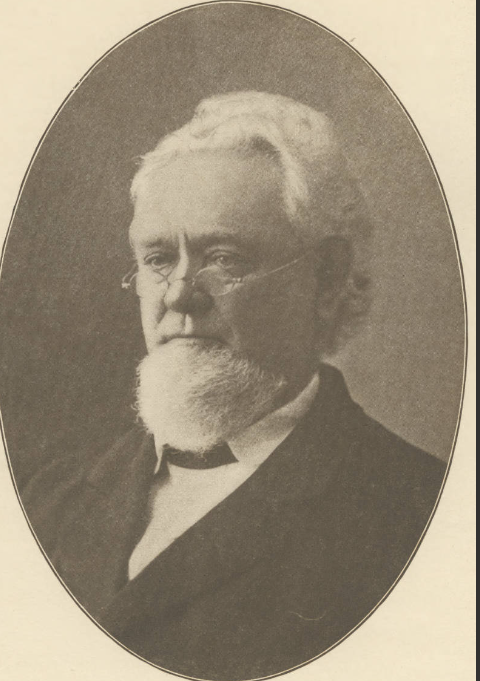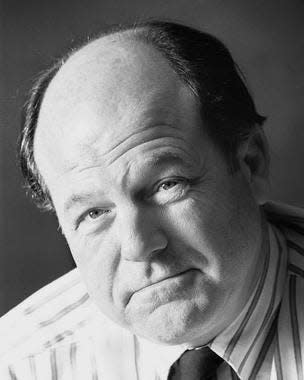Granville P. Moody, a Methodist minister in Columbus, became a Union colonel in Civil War

Religion came early into central Ohio in the years after the American Revolution. Frontier Franklinton was founded in 1797. By 1806, a Presbyterian minister named James Hoge received the call and established a church in central Ohio.
The Methodists were not far behind.
The more newly formed evangelical churches of the Methodists and Baptists saw a chance to grow in the “West.”
The Methodist church was established in central Ohio with the gathering of four people in a cabin in the state's new capital of Columbus, which was founded in 1812. Methodist ministers had been invited to the town since its founding, and by 1813, the first congregation of four members met. They included George McCormick and his wife, George B. Harvey and Jane Armstrong, who was soon to be George's wife. It was later said to be the first marriage solemnized in Columbus. In short order they were soon joined by a free African American named Moses Freeman.

A later history said of the Methodist Church in Columbus: “At first its growth was slow and feeble. The early Methodists were a humble folk. They were very poor, were burdened with debt, and did not hold social rank…”
But in time, due to the evangelical outreach of its circuit-riding ministers, the church in Columbus, and across Ohio, grew in influence. It was to this established town of Columbus that a new pastor came in 1845. His name was Granville P. Moody and it was a name to be remembered.
A later history described him in some detail. “He was of Puritan stock, born in Portland, Maine, January 2, 1812…He settled in Muskingum County, Ohio, when eighteen years old, and engaged in mercantile pursuits. While teaching in a Methodist Sabbath school, he was converted…He joined the Ohio Methodist Conference in 1833.”
The Methodists had been given a lot for a church on the north side of Town Street between High and 3rd Streets (now a part of the site of John F. Wolfe Columbus Commons) by the Proprietors of Columbus. Other denominations had been given other lots. The Methodists began with a small, one-room church, and built, built and rebuilt as the congregation grew larger. By 1845, there was a brick church of some size on the lot. It was to this church that Granville Moody came as pastor.
“He served it two years, from the fall of 1845 to that of 1847. He had great success and reported a membership of 644 the first year and 600 the second year. Encouraged by this growth, the society felt strong enough to divide. William Neil gave them a lot on the west side of High Street between Gay and Long Streets … on which Wesley Chapel was built. The location was then considered the northern part of the city. A colony of 190 members went out of Town Street” to this new site.
After leaving Columbus in 1847, Granville Moody continued to grow in influence and position in the Methodist Church in Ohio and the Midwest. And then came the Civil War.
At the outbreak of the war, Gov. William Dennison offered Moody command of the 74th Ohio Volunteer Infantry, whose duty soon became guarding several thousand Confederate prisoners at the Camp Chase Confederate Prison Camp five miles west of Columbus. Moody was considered to be a firm, but fair, administrator.
When the rebels later learned that he was leaving, they promised him the same treatment if he were to become a prisoner of the Confederacy. “Should Colonel Moody, at any time become a prisoner of our [Confederate] government, we hereby earnestly request for him the highest consideration and treatment, as a proper acknowledgment of his kindness and care for us.” But some wondered how well he might fight.
The doubters soon found out.
Col. Mooody led the 74th Ohio into the Battle at Stones River (Dec. 31, 1862- Jan. 2, 1863) near Murfreesboro, Tennessee. A later account noted that “his horse was shot from under him, he took a bullet in his right calf and he narrowly escaped a fatal wound when one or more bullets shattered a revolver he carried in his right breast pocket, more bullets shredded his uniform so much that one man called him the 'ragged colonel.'"
As a practicing Methodist minister, Moody continued to preach to his men and others while in uniform in the Union Army. But as one account put it, “the rigors of campaign and camp took a toll on the 50-year-old Moody and prompted his resignation in May, 1863. It was accepted with regret.”
Moody continued to preach and serve as a Methodist minister through the rest of the Civil War and after. The “Fighting Parson” closed a long career of service to church and society with his death in 1887 in Mt. Pleasant, Iowa. He was buried nearby. His autobiography, "A Life’s Retrospect," was published posthumously in 1890.
This article originally appeared on USA TODAY NETWORK: Columbus Methodist minister Granville Moody known as 'Fighting Parson'
